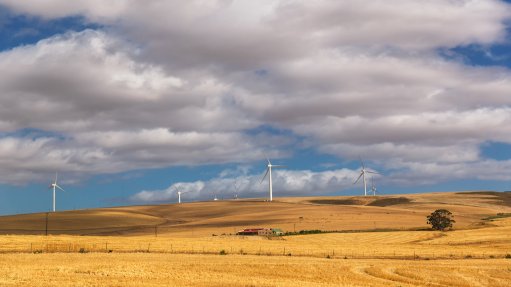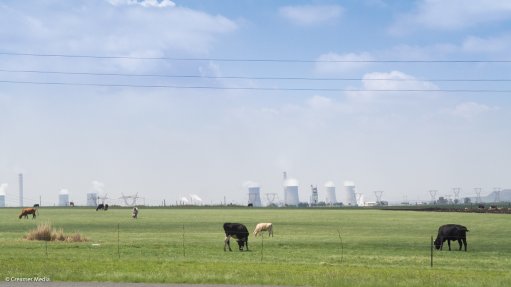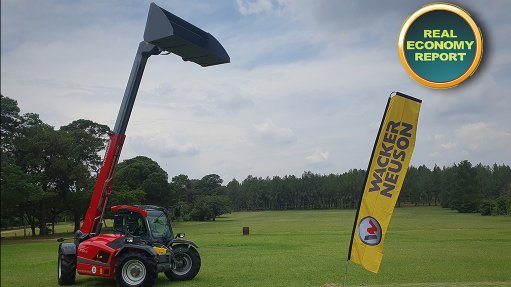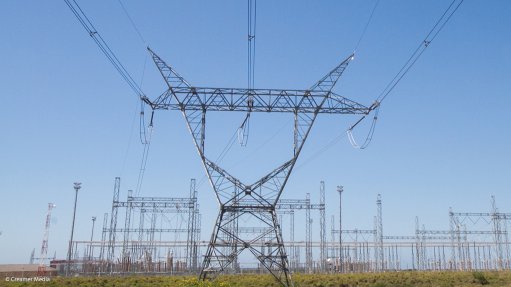IMF recommends reforms as Botswana faces mining-induced fiscal pressure
The International Monetary Fund (IMF) has completed an Article IV consultation in Botswana, which found that the diamond sector is dragging the country’s economic growth down.
After growing by 3.2% in 2023, Botswana’s economic activity contracted by 3% in 2024, mostly owing to strong headwinds in the diamond market, including competition from lab-grown diamonds and lower demand from China.
Botswana’s GDP is expected to contract by 1% again this year, mostly owing to further declines in diamond production, before an expected recovery in 2026.
The country’s diamond industry contributes about 30% to its GDP and is the main driver of its economy. Diamonds account for about 85% of Botswana’s exports.
The IMF holds bilateral discussions with member countries every year to collect economic and financial information.
IMF Botswana mission chief Édouard Martin reports that Botswana’s mining output declined by 24% in 2024, while non-mineral activity also regressed.
“Reflecting a further decline in exports, and despite an increase in revenue from the Southern African Customs Union, the current account balance deteriorated markedly – from a surplus of 1.5 % of GDP in 2023 to a deficit of 4.2% of GDP in 2024 – while international reserves declined to about five months of imports cover,” Martin states.
Over the last year, inflation has remained below the lower bound of the Bank of Botswana’s (BoB’s) target range of 3% to 6%. It is expected to get back within this range over the next few months as the recent depreciation of the pula partially passes through to consumer prices.
With activity and inflation subdued, the BoB has kept its policy rate unchanged at 1.9% since August 2024.
Effective July 11, to safeguard the competitiveness of domestic industries, promote diversification and preserve official foreign exchange reserves, the authorities increased the pula rate of deprecation against its currency basket while widening the trading margin.
Martin explains that the pula has since depreciated by 6% against the dollar and 8.6% against the rand.
“On the budget side, preliminary estimates indicate that the fiscal deficit increased further in the 2024/25 financial year to 7.1% of GDP, as a decline in mineral revenues and increase in current spending were only partly offset by lower capital spending.
“As a result, public debt has increased to more than 30% of GDP,” Martin says.
Looking ahead, the economy is expected to contract by about 1% this year, as historically high stocks of diamonds restrain new mining activity and as activity in other sectors slows down as the government reduces its spending.
Over the medium term, if the authorities implement ambitious reforms to ensure fiscal and external sustainability and diversify the economy, the IMF predicts that Botswana’s growth could recover gradually to more than 4%.
“While the banking sector remains well capitalised and profitable, liquidity has tightened. Accelerating the implementation of the remaining 2023 Financial Sector Assessment Programme recommendations will help reduce financial sector risks and reinforce financial sector stability,” Martin notes.
To enhance Botswana’s financial sector resilience and accelerate economic growth and job creation, the IMF recommends greater private sector participation, a more diversified export base and a more efficient public sector.
“The initiatives launched by the government aimed at reducing wasteful public spending, better prioritising public investment and promoting private sector-led investment, including as part of the Botswana Economic Transformation Programme, are welcome,” Martin comments.
To complement these initiatives, the IMF emphasises the need for more reforms aimed at enhancing domestic revenue mobilisation; streamlining the wage bill; better targeting social assistance programmes; strengthening the management of State-owned enterprises; and creating a more conducive business environment, including by reducing red tape and promoting financial deepening.
The IMF has encouraged the Botswana government to include such reforms into its new five-year National Development Plan.
Article Enquiry
Email Article
Save Article
Feedback
To advertise email advertising@creamermedia.co.za or click here
Comments
Press Office
Announcements
What's On
Subscribe to improve your user experience...
Option 1 (equivalent of R125 a month):
Receive a weekly copy of Creamer Media's Engineering News & Mining Weekly magazine
(print copy for those in South Africa and e-magazine for those outside of South Africa)
Receive daily email newsletters
Access to full search results
Access archive of magazine back copies
Access to Projects in Progress
Access to ONE Research Report of your choice in PDF format
Option 2 (equivalent of R375 a month):
All benefits from Option 1
PLUS
Access to Creamer Media's Research Channel Africa for ALL Research Reports, in PDF format, on various industrial and mining sectors
including Electricity; Water; Energy Transition; Hydrogen; Roads, Rail and Ports; Coal; Gold; Platinum; Battery Metals; etc.
Already a subscriber?
Forgotten your password?
Receive weekly copy of Creamer Media's Engineering News & Mining Weekly magazine (print copy for those in South Africa and e-magazine for those outside of South Africa)
➕
Recieve daily email newsletters
➕
Access to full search results
➕
Access archive of magazine back copies
➕
Access to Projects in Progress
➕
Access to ONE Research Report of your choice in PDF format
RESEARCH CHANNEL AFRICA
R4500 (equivalent of R375 a month)
SUBSCRIBEAll benefits from Option 1
➕
Access to Creamer Media's Research Channel Africa for ALL Research Reports on various industrial and mining sectors, in PDF format, including on:
Electricity
➕
Water
➕
Energy Transition
➕
Hydrogen
➕
Roads, Rail and Ports
➕
Coal
➕
Gold
➕
Platinum
➕
Battery Metals
➕
etc.
Receive all benefits from Option 1 or Option 2 delivered to numerous people at your company
➕
Multiple User names and Passwords for simultaneous log-ins
➕
Intranet integration access to all in your organisation



















